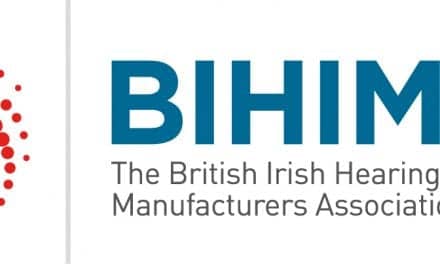
Just around the corner is Better Hearing and Speech Month in May. More than any other time in our industry’s history, the hearing health care and medical communities are uncovering dramatic findings that link amplification and better hearing to a wide range of positive quality-of-life, social, economic, and health improvements. Just a few of these include:
- Hearing loss, cognitive function, and dementia. In this month’s HR Online News and Letters, some remarkable findings by Frank Lin, MD, PhD, and colleagues at Johns Hopkins are featured. Essentially, the research suggests that the risk of developing dementia increases for those who have moderate-to-severe hearing loss. In fact, for study participants ages 60+ years, more than one-third (36.4%) of the risk for dementia was associated with hearing loss. Although it should be noted that there was no finding that hearing aids reduce the risk of dementia, it should also be noted that study subjects increased their risk of developing Alzheimer’s disease by about 20% for every 10 dB of hearing loss beyond 25 dBHL. Lin et al also note that interventions that would result in a delay in the onset of dementia by even 1 year could lead to a 10% decrease in its prevalence by 2050. A lot of things could be at work here, including the possibility that the same genetic or neurological factors that contribute to hearing loss are also involved in dementia, but this and other studies certainly point to a close relationship for hearing and cognitive status. For an excellent discussion on this topic, see the article by Douglas Beck, PhD, and Carol Flexer, PhD, “Listening Is Where Hearing Meets Brain…in Children and Adults” in the February 2011 edition of HR, as well as the Letter in this issue by audiologist Arthur Podwall, PhD, and his son, neurologist David Podwall, MD.
- Hearing loss and wages. A study by the Better Hearing Institute (BHI) and a related interview with BHI Executive Director Sergei Kochkin, PhD, in the October 2005 HR, suggest a good-news, bad-news situation for people with hearing loss. The bad news is that—treated or untreated—people will pay for their hearing loss; the good news is that those who take positive action and seek treatment via amplification will ultimately save themselves, on average, thousands of dollars in lost wages and future income. A more recent BHI report indicates that, of the 34 million Americans with hearing loss, roughly 60% of them are in the workforce, and those with untreated hearing loss lose as much as $30,000 in annual income. The study, which looked at over 40,000 US households, shows that the use of hearing aids can reduce the risk of income loss by 90% to 100% for those with milder hearing loss, and from 65% to 77% for those with severe-to-moderate hearing loss.
- Hearing loss and quality of life. If the above isn’t persuasive enough, take a look back to the National Council on the Aging (NCOA) study published in the January 2000 HR (available at www.betterhearing.org/pdfs/MR40.pdf). The survey of 4,000 people shows that hearing instrument users are likely to report improvements in their physical, emotional, mental, and social well-being. Additionally, it shows that users of hearing aids are more socially active and avoid extended periods of depression, worry, paranoia, and insecurity compared to non-users with hearing loss.
Hearing loss is one of the least-appreciated major health issues in America. Let’s get the word out during Better Hearing and Speech Month in May!
Changes at The Hearing Journal. Although he may have technically been HR‘s “arch-rival” and he certainly was a tough competitor, Hearing Journal former Editor-in-Chief David Kirkwood is also a gentleman and a friend. We’ve traveled, jostled cameras, eaten bland banquet food, and traded baseball banter with each other for nearly 20 years. So, when David left HJ in January, I felt a bit like you do in grade school when you realize that a buddy is moving away. His and Contributing Editor Gus Mueller’s articles at HJ speak for themselves, and both men leave behind a large and excellent body of work—as does Sales Manager Martha McGarity, who sold the ads to make it all happen. The HR staff wishes them all the best in their new endeavors.
Karl Strom
Editor-In-Chief





